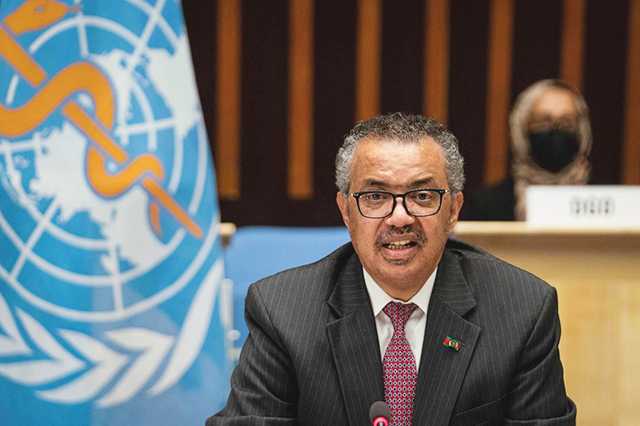The WHO Director General said that the world is currently in a very dangerous period of a pandemic. This warning comes after the more contagious Delta variant of the Covid-19 virus was detected in nearly 100 countries
GENEVA – The World Health Organization (WHO) warned on Saturday (3/7) that the world is currently in a very dangerous period of the coronavirus pandemic after the more infectious Delta variant was detected in nearly 100 countries.
Earlier on Friday (2/7) last week, WHO Director-General, Tedros Adhanom Ghebreyesus, said that the variant, which was first reported in India, is dangerous because it continues to evolve and mutate. Therefore, there is a need for constant evaluation and careful adjustment of the public health response.
“Delta (variant) has been detected in at least 98 countries and is spreading rapidly in countries with low and high vaccination coverage,” Tedros said. “In countries with low Covid-19 vaccination coverage, horrific sights of overflowing hospitals are again commonplace, and so far no country has come out of this crisis,” he added.
Governments around the world have actually been increasing vigilance over the spread of the Delta variant even as they eased restrictions on movement and reopened borders in a bid to save their battered economies.
Also Read:
What happened until Brazil stopped using the Astrazeneca Covid-19 vaccine for pregnant women
–
–
The US Centers for Disease Control and Prevention (CDC) said nearly 25 percent of new infections in the US have been linked to the Delta variant and this is an increase from 6 percent at the start of last month.
While the UK Public Health Service (Public Health England) reports that the Delta variant has been responsible for 99 per cent of positive cases in Covid-19 tests, while the European Center for Disease Prevention and Control (European CDC) has warned that the Delta variant will cause Covid-19 cases. -19 above 90 percent in the European region until the end of next month.
The Delta variant also surged across Asia from Australia to Malaysia reporting a spike in infections that prompted several Asian countries to re-impose lockdowns and speed up vaccination campaigns.
Therefore, Tedros urged governments in these countries to vaccinate at least 10 percent of their population, starting with citizens on the front lines and vulnerable groups.
“All of that will end the acute stage of the pandemic and save many lives,” Tedros said.
The WHO director-general also urged vaccine manufacturers, such as Pfizer-BioTech and Moderna, to share their knowledge and technology as a way to accelerate the establishment of mRNA vaccine production centers (messenger ribonucleic acid) new.
“The sooner we start building more vaccine centers and increase global vaccine capacity, the sooner we can reduce the lethal spike,” he added.
Two Ways
Also Read:
Border Closing Late, India’s Covid-19 Wave Spreads to Nepal
–
–
On that occasion Tedros said there are two ways to fight the current surge in Covid-19 infections. The first is to ensure that public health and social measures, such as early case detection, surveillance, testing, isolation and clinical care, are all in place.
Second, the world must be willing to share protective gear, oxygen, tests, treatments and vaccines. “Although several countries have shared their vaccine stocks, but the numbers are very few and exceed the current variant cases,” Tedros concluded, adding that these two ways are the best ways to slow down the pandemic, save lives, promote global economic recovery and prevent further dangerous variants . n ST/I-1
(they / I-1)
Editor : Ilham Sudrajat
Author : Ilham Sudrajat
– .


:quality(80)/cdn-kiosk-api.telegraaf.nl/5827fbae-dd15-11eb-affa-0255c322e81b.jpg)